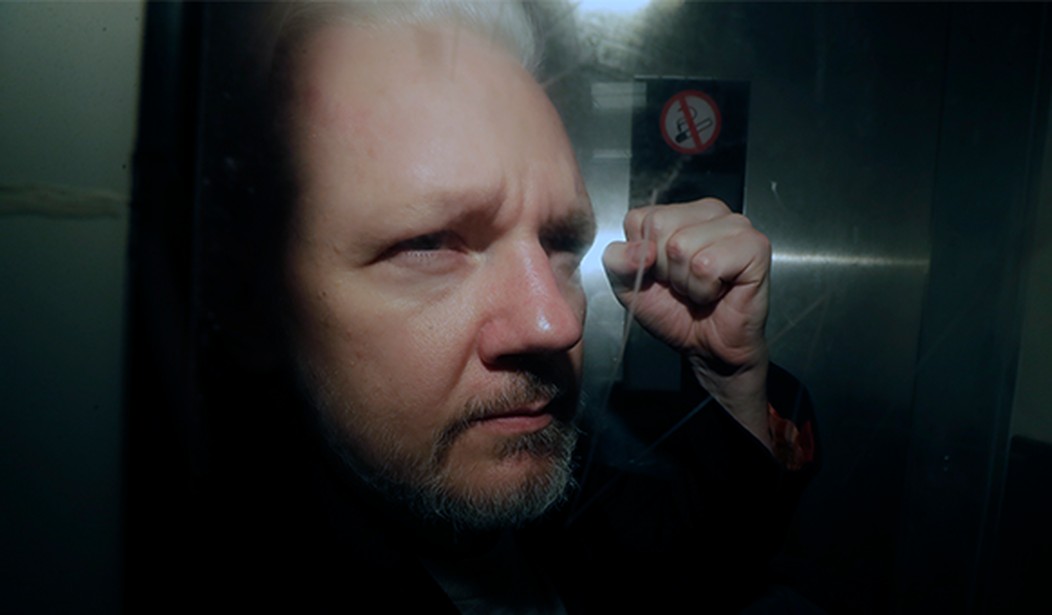It’s been nearly a year since a lower court in London ruled that Wikileaks founder Julian Assange couldn’t be extradited to the United States on espionage charges related to the theft of hundreds of thousands of classified documents by Chelsea Manning and their subsequent publication. The court did leave open the opportunity for an appeal to the ruling which we filed immediately, but it took until July for the British courts to approve the appeal process. That appeal finally made its way to the higher appellate court, where a judge this week overturned the previous court’s findings and said that Assange could indeed be extradited. Unfortunately, that’s still not the end of the complicated process, since the final decision will now move from the judicial branch to the executive branch in the British government. (Associated Press)
A British appellate court opened the door Friday for Julian Assange to be extradited to the United States by overturning a lower court ruling that found the WikiLeaks founder’s mental health was too fragile to withstand the American criminal justice system.
The High Court in London ruled that U.S. assurances were enough to guarantee Assange would be treated humanely and directed a lower court judge to send the extradition request to the home secretary for review. The home secretary, who oversees law enforcement in the U.K., will make the final decision on whether to extradite Assange.
“There is no reason why this court should not accept the assurances as meaning what they say,″ the High Court ruling stated. “There is no basis for assuming that the USA has not given the assurances in good faith.”
The lower court never claimed that the request for extradition wasn’t valid or that there was no indication that Assange had broken the law. They instead agreed with his attorneys that his mental condition was too unstable and he might attempt to take his own life if he were to be locked up in an American prison. We were probably in a delicate position to argue the case at that point, being only a few months out from the unfortunate “suicide” of Jeffrey Epstein.
The appellate court disagreed this week, however. Our government provided assurances that Assange will be treated humanely and his mental health needs will be attended to. Other offers were included, such as the option of serving his time in a prison in his native country of Australia if he’s convicted. That was apparently enough of an effort to convince the court that the process could be carried out safely.
None of this means that we’re going to be getting our hands on Assange any time soon or possibly ever, though. The appellate court only rules that he could be extradited, not that he must be. The decision now lands in the lap of British Home Secretary Priti Patel. She is a former Conservative Party MP who was appointed by Boris Johnson in June of 2019. The British press is describing this as a “rubber-stamping” process, but it’s not at all clear if that will prove to be the case. Assange remains a political hot potato and Patel will no doubt be consulting with BoJo before making any sort of decision.
That could still leave Boris Johnson in a tight spot. Julian Assange has been fetishized by supporters in England much the same as he has by many on the left in the United States. The Prime Minister will no doubt take that fact into consideration. It could also come down to a question of how willing Johnson is to risk some political flack just to do a favor for the United States at this point. Our relationship with Johnson isn’t nearly as solid as it was when Trump was in charge, particularly after Great Britain took their own lumps during the botched evacuation of Afghanistan.
Johnson could simply decide to put the decision on hold for a considerable time. And he might be forced to do that anyway because Assange’s attorneys have already said they intend to appeal this week’s ruling. There’s no telling how long that could take. So as things stand today, this court ruling is really only one more small step on what may still be a very long road ahead of us before Julian Assange might potentially be brought to justice.








Join the conversation as a VIP Member